Fleurs du Mal Magazine


Or see the index
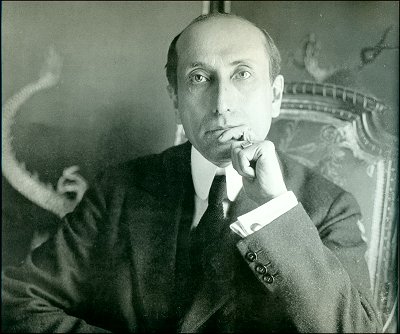
Amado Nervo
(1870-1919)
“En Paz”
(Artifex vitae artifex sui)
Muy cerca de mi ocaso, yo te bendigo, Vida,
porque nunca me diste ni esperanza fallida,
ni trabajos injustos, ni pena inmerecida;
Porque veo al final de mi rudo camino
que yo fui el arquitecto de mi propio destino;
que si extraje la mieles o la hiel de las cosas,
fue porque en ellas puse hiel o mieles sabrosas:
cuando planté rosales coseché siempre rosas.
…Cierto, a mis lozanías va a seguir el invierno:
¡mas tú no me dijiste que mayo fuese eterno!
Hallé sin duda largas las noches de mis penas;
mas no me prometiste tan sólo noches buenas;
y en cambio tuve algunas santamente serenas…
Amé, fui amado, el sol acarició mi faz.
¡Vida, nada me debes! ¡Vida, estamos en paz!
Amado Nervo
“At Peace”
(Creator of himself, of his destiny)
Very near my sunset, I bless you, Life
because you never gave me neither unfilled hope
nor unfair work, nor undeserved sorrow.
Because I see at the end of my rough way
that I was the architect of my own destiny
and if I extracted the sweetness or the bitterness of things
it was because I put the sweetness or the bitterness in them
when I planted rose bushes I always harvested roses
Certainly, winter is going to follow my youth
But you didn’t tell me that May was eternal
I found without a doubt long my nights of pain
But you didn’t promise me only good nights
And in exchange I had some peaceful ones
I loved, I was loved, the sun caressed my face
Life, you owe me nothing, Life, we are at peace!
Amado Nervo poetry
kempis.nl poetry magazine
More in: Archive M-N
![]()
Prijs der Nederlandse Letteren 2012 voor
Leonard Nolens
De Vlaamse dichter en dagboekschrijver Leonard Nolens (Bree, 11 april 1947) ontvangt dit najaar de Prijs der Nederlandse Letteren. Aan de prijs is een geldbedrag verbonden van 40.000 euro.
Dit maakte de voorzitter van het Comité van Ministers van de Taalunie, de Vlaamse Minister van Onderwijs Pascal Smet woensdagavond bekend in een uitverkochte Bourlaschouwburg in Antwerpen, waar de 65ste verjaardag van Nolens gevierd werd.
‘Nolens doet het Nederlands opnieuw zingen’, zo stelt de jury onder voorzitterschap van Herman Pleij. De jury noemt Nolens een ‘uitzonderlijk dichter en zeer begenadigd voorlezer’ en kenmerkt zijn werk als ‘een levenslange worsteling in taal en een zoektocht naar de eigen identiteit en die van de ander’.
De laureaat werd woensdagochtend overdonderd door het bericht. Hij zat in zijn werkkamer toen minister Smet belde: ‘Het was of de buitenwereld op een onwezenlijke manier binnenkwam’.
Bij de aankondiging in de Bourlaschouwburg zei minister Smet: ‘Leonard Nolens wijdt zich al zijn hele leven aan wat allicht economisch een van de meest nutteloze bezigheden is, en daar heb je in deze tijden uitzonderlijk veel lef voor nodig. Maar zonder taal, gevoed door taalkunstenaars, is er van economie waarschijnlijk helemaal geen sprake’.

Nolens heeft sinds zijn debuut in 1969 een indrukwekkend oeuvre opgebouwd. Zijn bundel Liefdes verklaringen (1990) werd in Nederland bekroond met de Jan Campertprijs en in België met de Driejaarlijkse Prijs van de Vlaamse Gemeenschap voor poëzie. In 1997 kreeg hij de Constantijn Huygensprijs voor zijn gehele oeuvre. In 2008 werd hem de VSB Poëzieprijs toegekend.
De Nederlandse Taalunie kent de Prijs der Nederlandse Letteren om de drie jaar toe aan een auteur van wie het werk een belangrijke plaats inneemt in de Nederlandstalige literatuur. De ene keer overhandigt de Belgische koning de prijs, de andere keer de Nederlandse koningin.
De jury van de Prijs der Nederlandse Letteren 2012 bestaat uit Herman Pleij (voorzitter), emeritus hoogleraar historische Nederlandse letterkunde, Universiteit van Amsterdam; Chandra van Binnendijk, publicist, redacteur in Suriname; Leen van Dijck, directeur Letterenhuis Antwerpen; Iris van Erve, docent Nederlands, hoofdredacteur Passionate Magazine, adviseur Nederlands Letterenfonds; Judit Gera, hoogleraar moderne Nederlandse Letteren aan de Universiteit van Boedapest, literair vertaler; Ruth Joos, radiomaker bij de VRT; Michiel van Kempen, bijzonder hoogleraar West-Indische Letteren Universiteit van Amsterdam; Hans Vandevoorde, docent Nederlandse literatuur Vrije Universiteit Brussel.
Leonard Nolens is sinds de instelling van de Prijs der Nederlandse Letteren in 1956 de twintigste laureaat. De eerdere laureaten waren: Herman Teirlinck (1956), A. Roland Holst (1959), Stijn Streuvels (1962), J.C. Bloem (1965), Gerard Walschap (1968), Simon Vestdijk (1971), Marnix Gijsen (1974), Willem Frederik Hermans (1977), Maurice Gilliams (1980), Lucebert (1983), Hugo Claus (1986), Gerrit Kouwenaar (1989), Christine D’Haen (1992), Harry Mulisch (1995), Paul de Wispelaere (1998), Gerard Reve (2001), Hella S. Haasse (2004),Jeroen Brouwers (2007) en Cees Nooteboom (2009).
Het Comitë van Ministers van de Nederlandse Taalunie bestaat uit Pascal Smet, Vlaams minister van Onderwijs, Jeugd, Gelijke Kansen en Brussel (voorzitter); Joke Schauvliege, Vlaams minister van Leefmilieu, Natuur en Cultuur; Marja van Bijsterveldt-Vliegenthart, Nederlands minister van Onderwijs, Cultuur en Wetenschap; Halbe Zijlstra, Nederlands staatssecretaris van Onderwijs, Cultuur en Wetenschap.
De Nederlandse Taalunie is een beleidsorganisatie waarin Nederland, Vlaanderen en Suriname samenwerken op het gebied van de Nederlandse taal en letteren en het onderwijs in en van het Nederlands. De Taalunie ziet het als haar opdracht om ervoor te zorgen dat alle Nederlandssprekenden hun taal op een doeltreffende manier kunnen gebruiken. Meer informatie over de Taalunie is te vinden op www.taalunieversum.org
‘Leonard Nolens doet het Nederlands opnieuw zingen. Hij is een uitzonderlijk dichter, een begenadigd voorlezer en zijn werk kenmerkt zich als een levenslange worsteling in taal en een zoektocht naar de eigen identiteit en die van de ander’. (Citaat van de jury van de Prijs der Nederlandse Letteren 2012)
Leonard Nolens (Bree, 1947) debuteerde in 1969 met de bundel Orpheushanden en heeft in de jaren daarop een indrukwekkend oeuvre opgebouwd. Zijn bundel Liefdes verklaringen (1990) werd in Nederland bekroond met de Jan Campertprijs en in België met de Driejaarlijkse Staatsprijs. In 1997 kreeg Nolens de Constantijn Huygensprijs voor zijn gehele oeuvre, in 2008 werd hem de VSB Poëzieprijs toegekend voor zijn bundel Bres (2007), de bundel die tien jaar lang een ‘dichtbundel in wording’ was, en waarvan delen in eerdere bundels verschenen.
‘Als de Vlaamse dichter Leonard Nolens schrijft, vangt een fluisterend zingen aan. Met schrijnende refreinen, welluidende zinnen en een vreugdevolle melodie.’ NRC Handelsblad
poëzie:
Orpheushanden (1969)
De muzeale minnaar (1973)
Twee vormen van zwijgen (1975)
Incantatie (1977)
Alle tijd van de wereld. een poëtica (1979)
Hommage (1981)
Vertigo (1983)
De gedroomde figuur (1986)
Geboortebewijs (1988)
Liefdes verklaringen (1990)
Hart tegen hart. Gedichten 1975-1990 (1991)
Tweedracht (1992)
Honing en as (1994)
En verdwijn met mate (1996)
De liefdesgedichten van Leonard Nolens (1997)
Hart tegen hart. Gedichten 1975-1996 (1998)
Voorbijganger (1999)
Manieren van leven (2001)
Derwisj (2003)
Laat alle deuren op een kier. Verzamelde gedichten (2004)
Een dichter in Antwerpen en andere gedichten (2005)
Een fractie van een kus (2007, Gedichtendagbundel)
Bres (2007)
Woestijnkunde (2008)
autobiografisch:
Stukken van mensen. Dagboek 1979-1982 (1989)
Blijvend vertrek. Dagboek 1983-1989 (1993)
De vrek van Missenburg. Dagboek 1990-1993 (1995)
Een lastig portret. Dagboek 1994-1996 (1998)
Dagboek van een dichter 1979-2007 (2009)
Jij bent schatrijk geboren
Jij en ik, dat is twee
Plus dit. Dat is drie. Dat is vragen
Om ruzie, men komt er niet uit.
Wij zitten perplex in elkaar.
Wij maken hetzelfde misbaar.
Jij en ik dat is een.
Jij bent schatrijk geboren
En kocht mij met gemak.
Dat zet ik je betaald
Op deze rekening.
Ik ben geen slapend geld
Vandaag, ik handel in ons.
Ik werk mij in het zweet
Van jou, ik bid en vloek mij
Uit de naad van ons,
Ik maak je winst op de markt.
Jij bent wat ik hier tel,
Mijn tol, mijn kapitaal.
Ik viel jou in de schoot
Van goud, ik woeker met wissels
Van ons en koop je terug
Nu ik ons doorverkoop
Aan vreemden, de truc is gelukt.
Wij staan op hetzelfde biljet.
Leonard Nolens
uit: ‘Derwisj’, 2003
fleursdumal.nl magazine
More in: Archive M-N, Art & Literature News
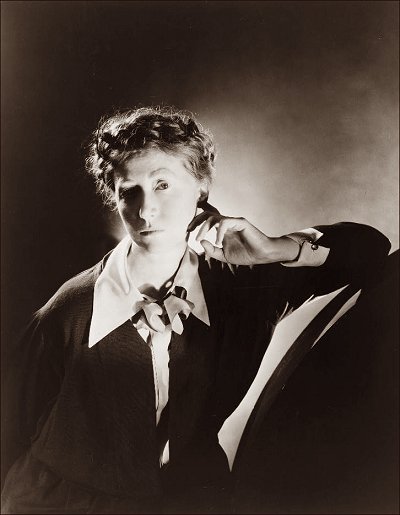
Marianne Moore
(1887 -1972)
Nevertheless
you’ve seen a strawberry
that’s had a struggle; yet
was, where the fragments met,
a hedgehog or a star-
fish for the multitude
of seeds. What better food
than apple seeds – the fruit
within the fruit – locked in
like counter-curved twin
hazelnuts? Frost that kills
the little rubber-plant –
leaves of kok-sagyyz-stalks, can’t
harm the roots; they still grow
in frozen ground. Once where
there was a prickley-pear –
leaf clinging to a barbed wire,
a root shot down to grow
in earth two feet below;
as carrots from mandrakes
or a ram’s-horn root some-
times. Victory won’t come
to me unless I go
to it; a grape tendril
ties a knot in knots till
knotted thirty times – so
the bound twig that’s under-
gone and over-gone, can’t stir.
The weak overcomes its
menace, the strong over-
comes itself. What is there
like fortitude! What sap
went through that little thread
to make the cherry red!
Marianne Moore poetry
kempis.nl poetry magazine

More in: Archive M-N
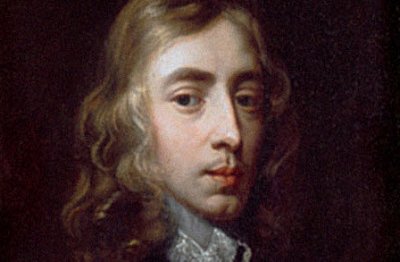
John Milton
On Time
Fly envious Time, till thou run out thy race,
Call on the lazy leaden-stepping hours,
Whose speed is but the heavy plummets pace;
And glut thy self with what thy womb devours,
Which is no more than what is false and vain,
And merely mortal dross,
So little is our loss,
So little is thy gain;
For when as each thing bad thou hast entombed,
And last of all, thy greedy self consumed,
Then long Eternity shall greet our bliss
With an individual kiss,
And Joy shall overtake us as a flood;
When every thing that is sincerely good
And perfectly divine
With Truth, and Peace, and Love shall ever shine
About the supreme throne
Of him, to whose happy-making sight alone,
When once our heavenly-guided soul shall climb,
Then, all this earthy grossness quit,
Attired with stars we shall for ever sit,
Triumphing over Death, and Chance, and thee O Time.
John Milton
Op de Tijd
Vlieg Tijd, jaloers, tot waar je landing ligt,
Spoor loden uren en hun luie stappen aan
Met slechts de valkracht van hun zwaar gewicht;
Zwelg, en verslind wat door je buik kan gaan,
Al is ’t niet meer dan valsheid zonder zin,
Verderfelijk slechts en vies:
Zo klein is ons verlies,
Zo klein is jouw gewin;
Want als jij al het kwade hebt verdelgd,
En dan tot slot je gulzige zelf verzwelgt,
Dan zegent ons de eeuwigdurendheid
Met ’n kus elk toebereid,
En overspoelt ons vreugde als een vloed;
Als alles wat waarachtig is en goed
En opperst goddelijk
Steeds straalt in waarheid, vredig, liefderijk
Rondom de hoogste troon
Van Hem, wiens zaligmakende betoon
Eens onze ziel ten hemel begeleidt,
Dan zetelen wij, alle aardse grofheid kwijt,
Getooid met sterren in de eeuwigheid,
Met zeges op de Dood, het Lot en jou, O Tijd.
Vertaling; Cornelis W. Schoneveld (2012)
kempis.nl poetry magazine
More in: Archive M-N, Milton, John, More translations
![]()
31 januari 2012
Schrijfster Doeschka Meijsing overleden
In haar woonplaats Amsterdam is gisteravond de schrijfster Doeschka Meijsing overleden. Zij werd vierenzestig jaar. Meijsing stierf aan de complicaties van een zware operatie.
Doeschka Meijsing schreef vele verhalen, gedichten, essays en romans. Ze debuteerde in 1974 bij Querido met De hanen en andere verhalen. Voor Tijger, tijger! (1980) ontving ze de Multatuliprijs. De tweede man (2000) werd genomineerd voor de AKO Literatuurprijs en betekende Meijsings doorbraak naar het grote publiek. Haar roman 100% chemie (2002) werd genomineerd voor de Libris Literatuur Prijs en kan worden gezien als een opmaat tot Moord, haar deel van de roman Moord & Doodslag (2005), die ze samen met haar broer Geerten Meijsing schreef. In 2008 publiceerde ze de roman Over de liefde, die bekroond werd met de F. Bordewijkprijs, de Opzij Literatuurprijs en de AKO Literatuurprijs. Dit aangrijpende relaas over de schaamte die liefde heet, werd haar laatste boek.
Annette Portegies, directeur/uitgever Querido: ‘Doeschka Meijsing verborg een diepe kwetsbaarheid achter een superieure vorm van ironie, zowel in haar werk als in haar leven. Weerspannig als ze was, was ze een vrouw om van te houden. Querido rouwt om de dood van Doeschka, die bijna veertig jaar aan de uitgeverij verbonden was. De Nederlandse literatuur verliest opnieuw een auteur van wereldformaat.’
De begrafenis zal in besloten kring plaatsvinden.
Daarachter
De diepte ja,
die kennen we.
Die is vaak nogal hartgrondig.
Maar de geur van violieren.
De deur naar de andere
kamer.
Waar ieder
voorwerp specifiek de geliefde
spiegelt.
Waar ieder
ander een rivaal is.
Die deur.
Daarachter.
Wie er liederen zingt.
Die.
(uit: ‘Paard Heer Mantel’, 1986)
Doeschka Meijsing (1947-2012) schreef verhalen, gedichten, essays en romans. Ze debuteerde in 1974 met De hanen en andere verhalen. Voor Tijger, tijger! (1980) ontving ze de Multatuliprijs. De tweede man (2000) werd genomineerd voor de AKO Literatuurprijs en betekende Meijsings doorbraak naar het grote publiek. Haar roman 100% chemie (2002) werd genomineerd voor de Libris Literatuur Prijs en kan worden gezien als een opmaat naar Moord, haar deel van de spraakmakende roman Moord & Doodslag (2005), die ze samen met haar broer Geerten schreef. In 2007 publiceerde ze de kleine roman De eerste jaren en in 2008 volgde haar veelgeprezen bestseller Over de liefde die bekroond werd met de die bekroond werd met de F. Bordewijkprijs, de Opzij Literatuurprijs en de AKO Literatuurprijs. Doeschka Meijsing heeft een indrukwekkend oeuvre op haar naam staan, dat in 1997 werd bekroond met de Annie Romeinprijs.
romans en verhalen:
De hanen en andere verhalen (1974)
Robinson (1976)
De kat achterna (1977)
Tijger, tijger! (1980)
Utopia of De geschiedenissen van Thomas (1982)
Beer en Jager (1987)
De beproeving (1990)
Vuur en zijde (1992)
Beste vriend (1994)
De weg naar Caviano (1996)
De tweede man (2000)
100 % chemie (2002)
Moord & Doodslag (2005) met Geerten Meijsing
De eerste jaren (2007)
Over de liefde (2008)
fleursdumal.nl magazine
More in: Archive M-N, In Memoriam
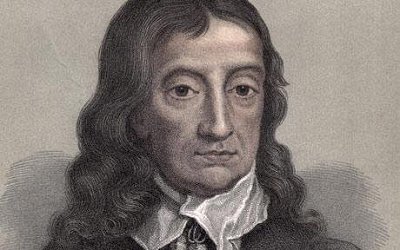
John Milton
(1608-1674 )
On Time
FLy envious Time, till thou run out thy race,
Call on the lazy leaden-stepping hours,
Whose speed is but the heavy Plummets pace;
And glut thy self with what thy womb devours,
Which is no more then what is false and vain,
And meerly mortal dross;
So little is our loss,
So little is thy gain.
For when as each thing bad thou hast entomb’d,
And last of all, thy greedy self consum’d,
Then long Eternity shall greet our bliss
With an individual kiss;
And Joy shall overtake us as a flood,
When every thing that is sincerely good
And perfectly divine,
With Truth, and Peace, and Love shall ever shine
About the supreme Throne
Of him, t’ whose happy-making sight alone,
When once our heav’nly-guided soul shall clime,
Then all this Earthy grosnes quit,
Attir’d with Stars, we shall for ever sit,
Triumphing over Death, and Chance, and thee O Time.
John Milton poetry
kempis.nl poetry magazine
More in: Archive M-N, Milton, John
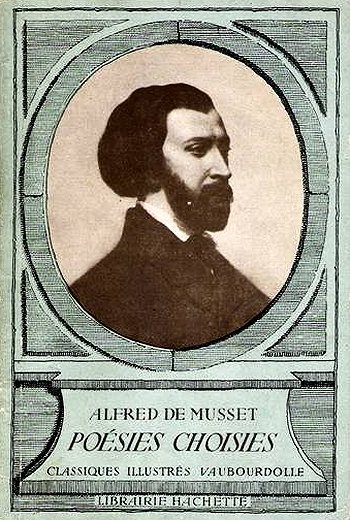
Alfred de Musset
(1810-1857)
Derniers vers
L’heure de ma mort, depuis dix-huit mois,
De tous les côtés sonne à mes oreilles,
Depuis dix-huit mois d’ennuis et de veilles,
Partout je la sens, partout je la vois.
Plus je me débats contre ma misère,
Plus s’éveille en moi l’instinct du malheur ;
Et, dès que je veux faire un pas sur terre,
Je sens tout à coup s’arrêter mon coeur.
Ma force à lutter s’use et se prodigue.
Jusqu’à mon repos, tout est un combat ;
Et, comme un coursier brisé de fatigue,
Mon courage éteint chancelle et s’abat.
1857
Alfred de Musset poetry
kempis.nl poetry magazine
More in: Archive M-N, Musset, Alfred de

John Milton
(1608-1674 )
Anno ætatis 17.
On the Death of a Fair Infant Dying of a Cough
I
O Fairest flower no sooner blown but blasted,
Soft silken Primrose fading timelesslie,
Summers chief honour if thou hadst out-lasted
Bleak winters force that made thy blossome drie;
For he being amorous on that lovely die
That did thy cheek envermeil, thought to kiss
But kill’d alas, and then bewayl’d his fatal bliss.
II
For since grim Aquilo his charioter
By boistrous rape th’ Athenian damsel got,
He thought it toucht his Deitie full neer,
If likewise he some fair one wedded not,
Thereby to wipe away th’ infamous blot,
Of long-uncoupled bed, and childless eld,
Which ‘mongst the wanton gods a foul reproach was held.
III
So mounting up in ycie-pearled carr,
Through middle empire of the freezing aire
He wanderd long, till thee he spy’d from farr,
There ended was his quest, there ceast his care.
Down he descended from his Snow-soft chaire,
But all unwares with his cold-kind embrace
Unhous’d thy Virgin Soul from her fair biding place.
IV
Yet art thou not inglorious in thy fate;
For so Apollo, with unweeting hand
Whilome did slay his dearly-loved mate
Young Hyacinth born on Eurotas strand,
Young Hyacinth the pride of Spartan land;
But then transform’d him to a purple flower
Alack that so to change thee winter had no power.
V
Yet can I not perswade me thou art dead
Or that thy coarse corrupts in earths dark wombe,
Or that thy beauties lie in wormie bed,
Hid from the world in a low delved tombe;
Could Heav’n for pittie thee so strictly doom?
Oh no? for something in thy face did shine
Above mortalitie that shew’d thou wast divine.
VI
Resolve me then oh Soul most surely blest
(If so it be that thou these plaints dost hear)
Tell me bright Spirit where e’re thou hoverest
Whether above that high first-moving Spheare
Or in the Elisian fields (if such there were.)
Oh say me true if thou wert mortal wight
And why from us so quickly thou didst take thy flight.
VII
Wert thou some Starr which from the ruin’d roof
Of shak’t Olympus by mischance didst fall;
Which carefull Jove in natures true behoofe
Took up, and in fit place did reinstall?
Or did of late earths Sonnes besiege the wall
Of sheenie Heav’n, and thou some goddess fled
Amongst us here below to hide thy nectar’d head.
VIII
Or wert thou that just Maid who once before
Forsook the hated earth, O tell me sooth,
And cam’st again to visit us once more?
Or wert thou that sweet smiling Youth!
Or that crown’d Matron sage white-robed truth?
Or any other of that heav’nly brood
Let down in clowdie throne to do the world some good.
IX
Or wert thou of the golden-winged hoast,
Who having clad thy self in humane weed,
To earth from thy præfixed seat didst poast,
And after short abode flie back with speed,
As if to shew what creatures Heav’n doth breed,
Thereby to set the hearts of men on fire
To scorn the sordid world, and unto Heav’n aspire.
X
But oh why didst thou not stay here below
To bless us with thy heav’n-lov’d innocence,
To slake his wrath whom sin hath made our foe
To turn Swift-rushing black perdition hence,
Or drive away the slaughtering pestilence,
To stand ‘twixt us and our deserved smart
But thou canst best perform that office where thou art.
XI
Then thou the mother of so sweet a child
Her false imagin’d loss cease to lament,
And wisely learn to curb thy sorrows wild;
Think what a present thou to God hast sent,
And render him with patience what he lent;
This if thou do, he will an off-spring give
That till the worlds last end shall make thy name to live.
John Milton poetry
kempis.nl poetry magazine
More in: Archive M-N, Milton, John
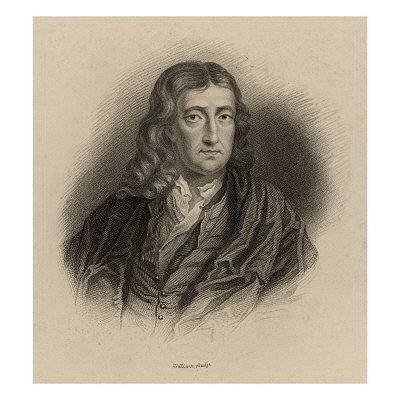
John Milton
(1608-1674 )
On the University Carrier who sickn’d in the time of his vacancy, being forbid to go to London, by reason of the Plague
Here lies old Hobson, Death hath broke his girt,
And here alas, hath laid him in the dirt,
Or els the ways being foul, twenty to one,
He’s here stuck in a slough, and overthrown.
‘Twas such a shifter, that if truth were known,
Death was half glad when he had got him down;
For he had any time this ten yeers full,
Dodg’d with him, betwixt Cambridge and the Bull.
And surely, Death could never have prevail’d,
Had not his weekly cours of carriage fail’d;
But lately finding him so long at home,
And thinking now his journeys end was come,
And that he had tane up his latest Inne,
In the kind office of a Chamberlin
Shew’d him his room where he must lodge that night,
Pull’d off his Boots, and took away the light:
If any ask for him, it shall be sed,
Hobson has supt, and ‘s newly gon to bed.
Another on the Same
Here lieth one who did most truly prove,
That he could never die while he could move,
So hung his destiny never to rot
While he might still jogg on, and keep his trot,
Made of sphear-metal, never to decay
Untill his revolution was at stay.
Time numbers motion, yet (without a crime
‘Gainst old truth) motion number’d out his time;
And like an Engin mov’d with wheel and waight,
His principles being ceast, he ended strait,
Rest that gives all men life, gave him his death,
And too much breathing put him out of breath,
Nor were it contradiction to affirm
Too long vacation hastned on his term.
Meerly to drive the time away he sickn’d,
Fainted, and died, nor would with Ale be quickn’d;
Nay, quoth he, on his swooning bed outstretch’d,
If I may not carry, sure Ile ne’re be fetch’d,
But vow though the cross Doctors all stood hearers,
For one Carrier put down to make six bearers.
Ease was his chief disease, and to judge right,
He di’d for heavines that his Cart went light,
His leasure told him that his time was com,
And lack of load, made his life burdensom,
That even to his last breath (ther be that say’t)
As he were prest to death, he cry’d more waight;
But had his doings lasted as they were,
He had bin an immortall Carrier.
Obedient to the Moon he spent his date
In cours reciprocal, and had his fate
Linkt to the mutual flowing of the Seas,
Yet (strange to think) his wain was his increase:
His Letters are deliver’d all and gon,
Onely remains this superscription.
John Milton poetry
kempis.nl poetry magazine
More in: Archive M-N, Milton, John
.jpg)
Alfred de Musset
(1810-1857)
Sur une morte
Elle était belle, si la Nuit
Qui dort dans la sombre chapelle
Où Michel-Ange a fait son lit,
Immobile peut être belle.
Elle était bonne, s’il suffit
Qu’en passant la main s’ouvre et donne,
Sans que Dieu n’ait rien vu, rien dit,
Si l’or sans pitié fait l’aumône.
Elle pensait, si le vain bruit
D’une voix douce et cadencée,
Comme le ruisseau qui gémit
Peut faire croire à la pensée.
Elle priait, si deux beaux yeux,
Tantôt s’attachant à la terre,
Tantôt se levant vers les cieux,
Peuvent s’appeler la Prière.
Elle aurait souri, si la fleur
Qui ne s’est point épanouie
Pouvait s’ouvrir à la fraîcheur
Du vent qui passe et qui l’oublie.
Elle aurait pleuré si sa main,
Sur son coeur froidement posée,
Eût jamais, dans l’argile humain,
Senti la céleste rosée.
Elle aurait aimé, si l’orgueil
Pareil à la lampe inutile
Qu’on allume près d’un cercueil,
N’eût veillé sur son coeur stérile.
Elle est morte, et n’a point vécu.
Elle faisait semblant de vivre.
De ses mains est tombé le livre
Dans lequel elle n’a rien lu.
Alfred de Musset poetry
kempis.nl poetry magazine
More in: Archive M-N, Musset, Alfred de
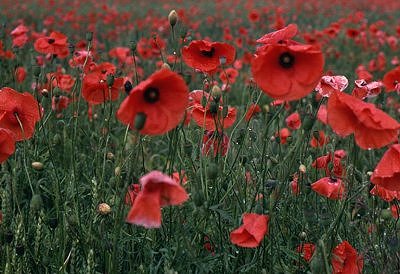
John McCrae
(1872-1918)
In Flanders fields
In Flanders fields the poppies blow
Between the crosses, row on row
That mark our place; and in the sky
The larks, still bravely singing, fly
Scarce heard amid the guns below.
We are the dead. Short days ago
We lived, felt dawn, saw sunset glow
Loved, and were loved, and now we lie
In Flanders fields.
Take up our quarrel with the foe:
To you from failing hands we throw
The torch; be yours to hold it high.
If ye break faith with us who die
We shall not sleep, though poppies grow
In Flanders fields.

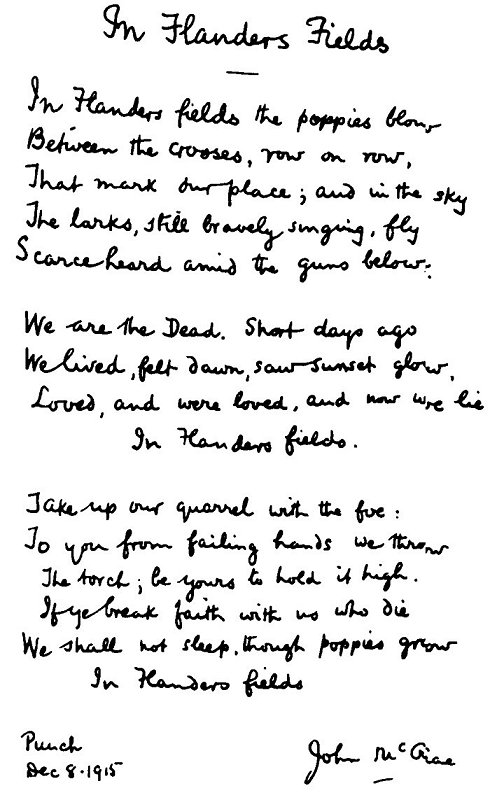
John McCrae poetry
kempis.nl poetry magazine
More in: Archive M-N, McCrae, John
.jpg)
Alfred de Musset
(1810-1857)
A une fleur
Que me veux-tu, chère fleurette,
Aimable et charmant souvenir ?
Demi-morte et demi-coquette,
Jusqu’à moi qui te fait venir ?
Sous ce cachet enveloppée,
Tu viens de faire un long chemin.
Qu’as-tu vu ? que t’a dit la main
Qui sur le buisson t’a coupée ?
N’es-tu qu’une herbe desséchée
Qui vient achever de mourir ?
Ou ton sein, prêt à refleurir,
Renferme-t-il une pensée ?
Ta fleur, hélas ! a la blancheur
De la désolante innocence ;
Mais de la craintive espérance
Ta feuille porte la couleur.
As-tu pour moi quelque message ?
Tu peux parler, je suis discret.
Ta verdure est-elle un secret ?
Ton parfum est-il un langage ?
S’il en est ainsi, parle bas,
Mystérieuse messagère ;
S’il n’en est rien, ne réponds pas ;
Dors sur mon coeur, fraîche et légère.
Je connais trop bien cette main,
Pleine de grâce et de caprice,
Qui d’un brin de fil souple et fin
A noué ton pâle calice.
Cette main-là, petite fleur,
Ni Phidias ni Praxitèle
N’en auraient pu trouver la soeur
Qu’en prenant Vénus pour modèle.
Elle est blanche, elle est douce et belle,
Franche, dit-on, et plus encor ;
A qui saurait s’emparer d’elle
Elle peut ouvrir un trésor.
Mais elle est sage, elle est sévère ;
Quelque mal pourrait m’arriver.
Fleurette, craignons sa colère.
Ne dis rien, laisse-moi rêver.
Alfred de Musset poetry
kempis.nl poetry magazine
More in: Archive M-N, Musset, Alfred de
Thank you for reading Fleurs du Mal - magazine for art & literature